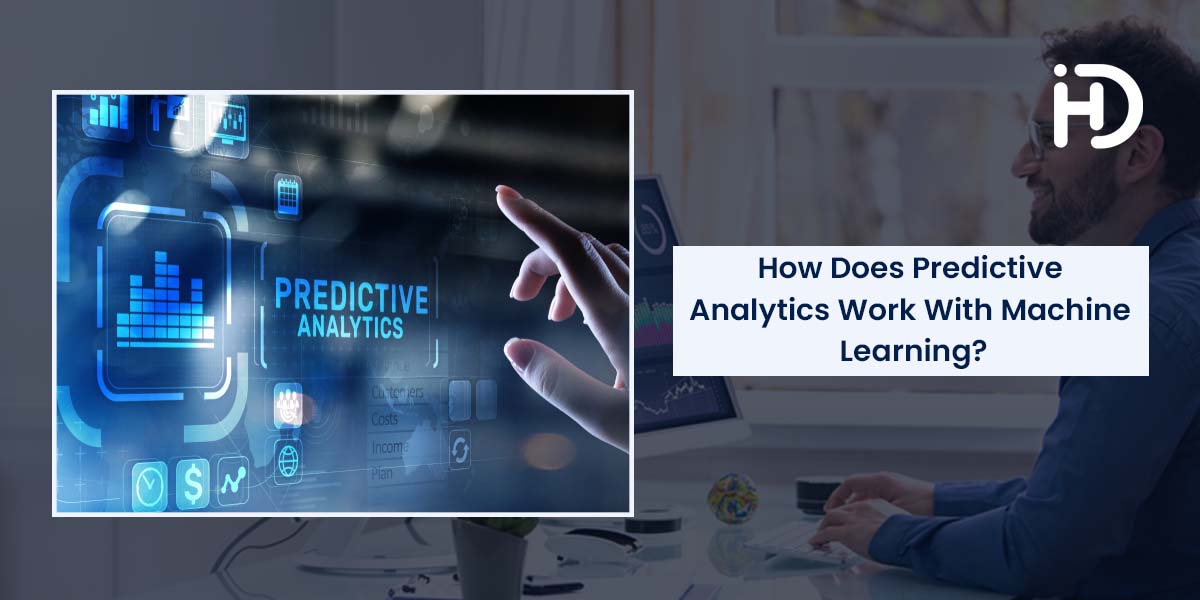Predictive analytics can predict the behavior of a population by analyzing the patterns it generates over time. Machine learning is a type of predictive analytics that uses algorithms to learn from data and make predictions based on what is known about similar situations in the past. These two techniques are both ways to leverage large amounts of data, which is where the similarity lies, but they are used for different purposes and can perform slightly different functions.
Predictive analytics isn't just about numbers. There are an endless number of ways to employ it, and it can be used in any and every kind of organization for any number of purposes.
Predictive analytics is a type of analysis that uses data to spot trends and forecast outcomes. Predictive models may identify potentially positive or negative outcomes based on your current performance.
Businesses today use predictive modeling to predict stock prices and supply levels, estimate demand for goods or services, optimize business strategy, review customer data, and target product marketing. The term 'predictive analytics' designates an approach rather than a particular technology, but it's possible to measure the value of your work by comparing the effectiveness of different techniques you might use at different stages during the process.
Machine learning is an innovative sub-field of AI that enables computers to learn on their own with minimal human supervision. Companies are leveraging machine learning algorithms for everything from marketing to product development and IT operations management.
It’s important for businesses to have a grasp on what exactly machine learning is, along with its different iterations, because it can help them choose best practices and make the most of this technology. Here’s a brief overview.
What is Predictive Analysis?
Predictive analytics creates forecasts based on historical data to determine what the outcome will probably be while diagnostic analytics slices and dices information to find the causes behind specific outcomes.
Businesses and sales representatives have always been interested in sophisticated ways to motivate their customers to make purchases. Sales have historically been an area of continual interest because the data that predicts future sales has never been completely available; now with it, businesses might find a solution.
It helps business owners know how best to market their product or service based on infinite variables such as income and type of home, rather than simple demographics that other forms of modeling are limited to.
What Is Machine Learning?
Artificial Intelligence is the replication of human feeling and emotion but created by machines. It includes a range of different technologies in addition to data analytics, including machine learning, sentiment analysis, and NLP. These diverse technologies each replicate human abilities but often operate in different ways in order to accomplish their specific tasks efficiently.
The machine learns by detecting patterns within the data sets. The algorithms in machine-learning programs and software are created to be versatile and allow for developers to make changes via hyperparameter tuning.
More specifically, ML is the foundational basis for deep learning and neural networks, the advanced techniques that are used in applications such as autonomous vehicle operation and financial forecasting.
Key Differences Between Predictive Analysis And Machine Learning.
-
Machin learning is the foundation of advanced learning and autonomous vehicles.
-
Meanwhile, predictive analysis is built on descriptive analysis which is the stepping stone toward prescriptive analysis.
-
The algorithms are designed in such a way that can evolve and improve the process data without being programmed.
-
Meanwhile, in predictive analysis, the data scientist is allowed to run the model manually.
Some important Use Cases of Machine Learning and Predictive Analysis
-
Retail and marketing organizations leverage data-driven targeting to fine-tune their strategy. Shopping behavior patterns are derived using predictive analytics and pinpointed for online advertising hyper-personalization, targeting potential interest groups in real time and anticipating sales with future trend analysis. Massive amounts of structured purchase information from the web, retail apps, and social media provide prompts for targeted ad campaigns. The final shipment is automatically expedited by aggregating bills of lading with commercial letters of credit.
-
Manufacturers also can use predictive models to monitor the equipment.
-
Predictive analysis can be widely used in the Healthcare industry.
-
Also, the HR department of any company could use the same to identify candidates and predict their time to quit.
Conclusion
Although both can work simultaneously together. But there are also some challenges which have to face in order to do so. So what are those challenges? While ML and
predictive analytics are becoming embedded in software, there will always be a need for expertise in deploying and interpreting predictive models because of the data challenges companies face. Furthermore, collecting this data will take time and be error-prone, inconsistent, and incomplete, so it's important to find ways to keep costs manageable!
Harnil Oza is a CEO of HData Systems - Data Science Company & Hyperlink InfoSystem a top mobile app development company in Canada, USA, UK, and India having a team of best app developers who deliver best mobile solutions mainly on Android and iOS platform and also listed as one of the top app development companies by leading research platform.
